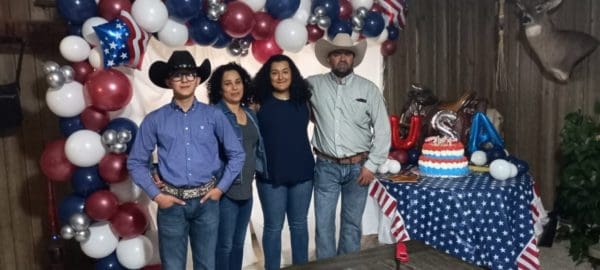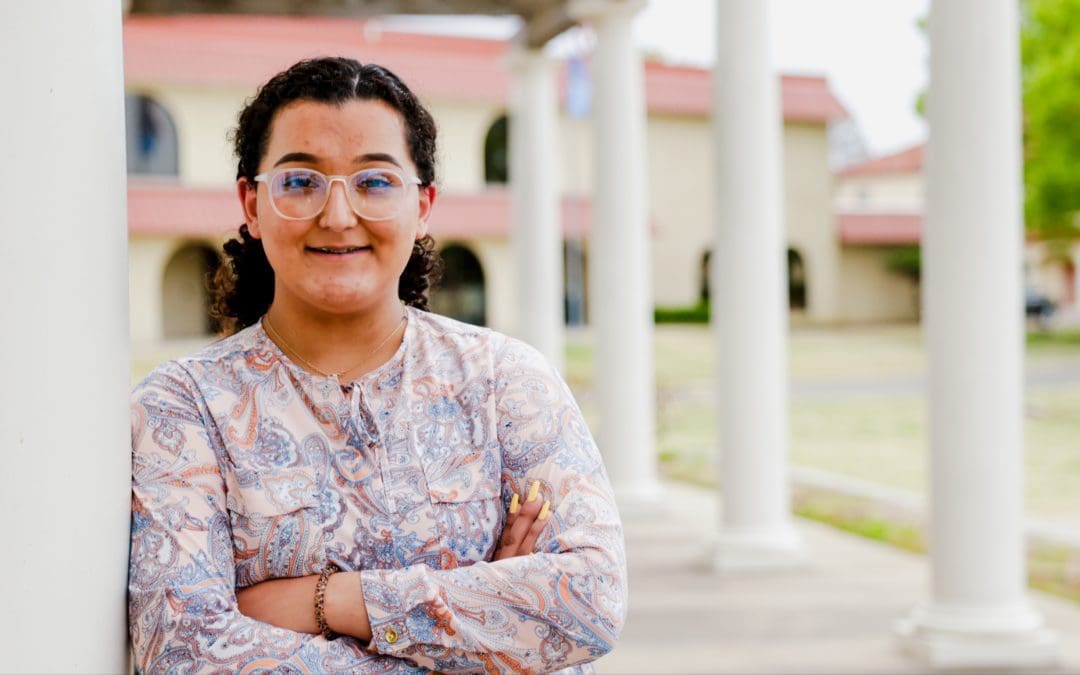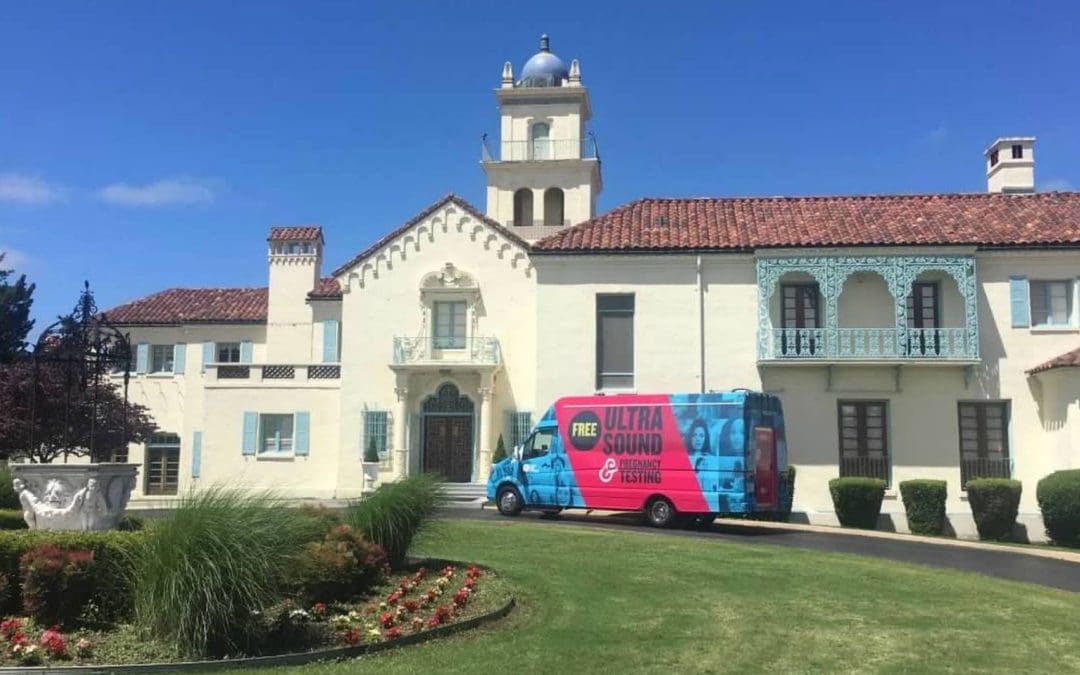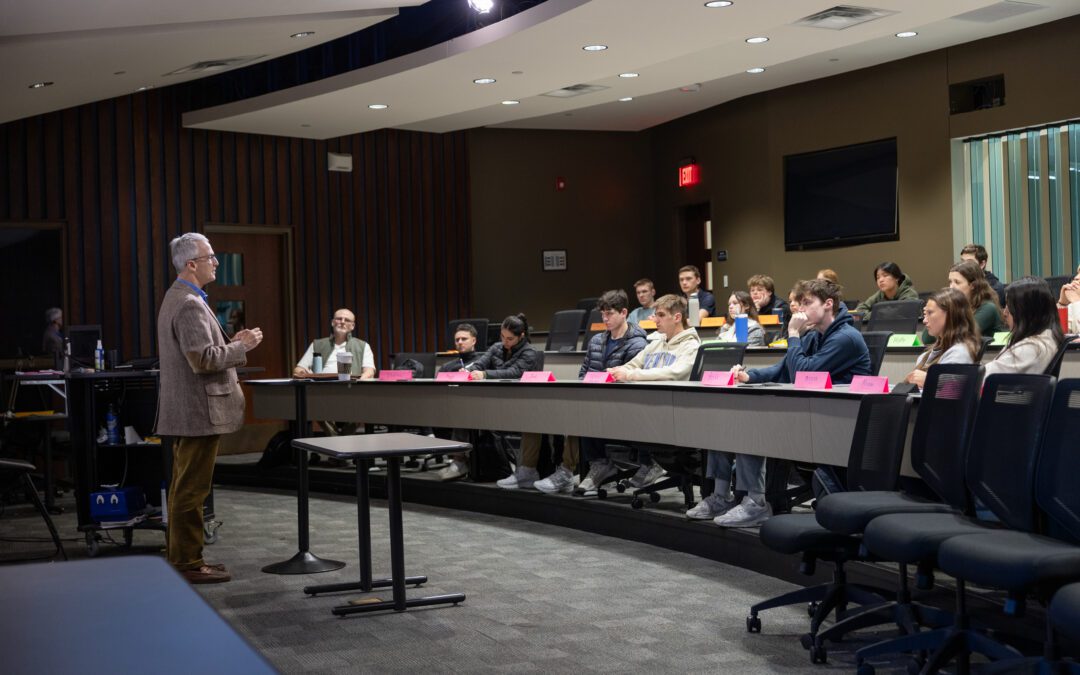When Vanesa Fernandez, a sophomore OKWU accounting major, turned 18 years old, she didn’t ask for gifts or an elaborate party. She wanted one thing: money for her United States citizenship application.
“I begged my dad. Dad, can you give me the money for this application, I want to do this,” Fernandez said. “It really sets you up for the rest of your life, you know? I’m going to live here for the rest of my life.”
And last week, after a delayed process due to the COVID-19 virus, Fernandez was finally able to make her dream a reality. At a ceremony in Tulsa attended by Mayor G.T. Bynum, she was sworn in as a United States citizen.
“I literally felt like I was reborn,” she said. “It’s kind of like this new life.”
“I think God gave me the professors I had my freshman year for a reason, the friends that I still have now for a reason. And then, slowly, I started to like it and started building relationships.”
Permanent Residents
Fernandez moved with her mother to America from Michoacán, Mexico—just west of Mexico City—when she was three years old. Her father had previously had a working arrangement in the United States; he’d work for half a year, sending back money to fund his family, and then he’d spend the other half back in Mexico with them, working there as well. When the family finally moved, it was to Nowata, OK, close by the ranch where Vanesa’s father worked. They had received permanent residency from the United States at that point.
Vanesa doesn’t remember living in Mexico. She grew up like any kid in America grows up—going to school, memorizing important dates for tests, and learning her national history from the school textbooks.
“You learn about American history, who the first president was, the Bill of Rights, and all this stuff,” she said. “You grow up learning about the electoral college and about voting.”
This point specifically—voting—stuck with her. “Everybody tells you it’s a right or a privilege to vote and to fulfill this role as an American,” she said. “And I had always grown up believing that.”
When she was in high school, the 2016 presidential election rolled around, and Vanesa was immersed in the discourse surrounding it. She’d hear her friends talking about candidates or points of emphasis in the campaign, but she felt shut out herself.
“That realization hit me: yes, I have my opinion on who I like, what I like, but at the end of the day, I can’t vote,” she said. “I think that was the biggest thing, and I think that’s kind of where this goal was set in place for me, at that time.”
Completely Flipped
If you ask her, Fernandez will be quick to point out that she didn’t necessarily plan to end up at OKWU. She definitely didn’t plan to end up an accounting major. She’s a first-generation college student, and when she was in high school, she imagined herself at a big state school—and didn’t imagine caring about class all that much.
“My intentions were to go to college for maybe a semester or two, and I was definitely not focusing on classes or a major or a degree,” she said. “I wanted to party my head off.”
Of all the things to notice about OKWU, it was the free application that caught Vanesa’s attention. “I filled out my application to OKWU, and I wrote this short little faith essay, and I didn’t really think anything of it. I was like, I’m not even going to go there. Last option out of all my list of colleges.”
Then she visited, and her perspective changed. When the time came to make a decision, her parents pushed her to consider OKWU, and she committed. But her attitude, by her own admission, was lacking.
“I kind of had this negative mindset… I don’t want to go to chapel, I don’t want to know about God, I don’t want to participate in class, I don’t want to make friends here,” she said. “I just kind of shut everything out.”
But as she spent time on campus, made friends, and experienced connections with the faculty, something began to happen.
“I don’t know,” she said. “I think OKWU has this magic in it that, whether you want it or not, it kind of seeps through you… God does everything for a reason. I think He gave me the professors I had my freshman year for a reason, the friends that I still have now for a reason. And then, slowly, I started to like it and started building relationships.”
The change in her life is stark. The sophomore accounting major on campus today probably wouldn’t recognize the high school senior who didn’t have a plan. “Looking back on it now, where I started mentality-wise, I am completely flipped,” Vanesa said.
“I passed? I passed! In my mind there were streamers, balloons, fireworks, everything was just going off.”
First Generation
Vanesa and both her parents committed as a family to become citizens, though the timing of the naturalization process has worked out differently for each of them. Vanesa is the first in the family to have reached her oath ceremony; her parents will follow later.
“It’s like this family effort, I guess you could say,” she said. “Every night, if I was studying my civics questions, we would all study together… My dad’s studying right now to take his test, and we’re all studying together. There’s always been unity between us.”
Fernandez admits that the testing portion of the citizenship process was somewhat daunting. Three sections: 100 civics and history questions, a reading/pronunciation section, and a writing section, all in addition to answering questions about herself she had provided via the original application.
The moment the results came, Fernandez was surprised by her proctor’s nonchalance. “She was like, ‘Okay, now we’re going to send you this letter for your oath ceremony.’ And I was like, Wait, I passed? I passed! In my mind there were streamers, balloons, fireworks, everything was just going off.”
There were 15 total at Vanesa’s oath ceremony, representing 11 different countries from around the world. And it was there, amidst the festivities and speeches and the local news crews, that the true significance of her achievement dawned.
 “Before, I didn’t have a voice. What happened in my life and my family’s life—later on, if I have kids one day—I essentially had no voice,” she said. “After my oath ceremony, seeing my certificate, that’s kind of like a rebirth… I can have a voice. I know it matters and I’m actually going to be able to, essentially, be heard.”
“Before, I didn’t have a voice. What happened in my life and my family’s life—later on, if I have kids one day—I essentially had no voice,” she said. “After my oath ceremony, seeing my certificate, that’s kind of like a rebirth… I can have a voice. I know it matters and I’m actually going to be able to, essentially, be heard.”
She’s also thankful for the platform she’s been given to share her process with others who may not know much about the experience of immigrants in America.
“In our society today, I think a lot of times immigration isn’t seen as a positive thing,” she said. “So for me to be able to share my experience [is important].”
And moving forward, Vanesa is excited to exercise her civic responsibility and become engaged, viewing it thoughtfully and respectfully. “I really do feel like this is such a huge responsibility,” she said. “How do I use this effectively?”



